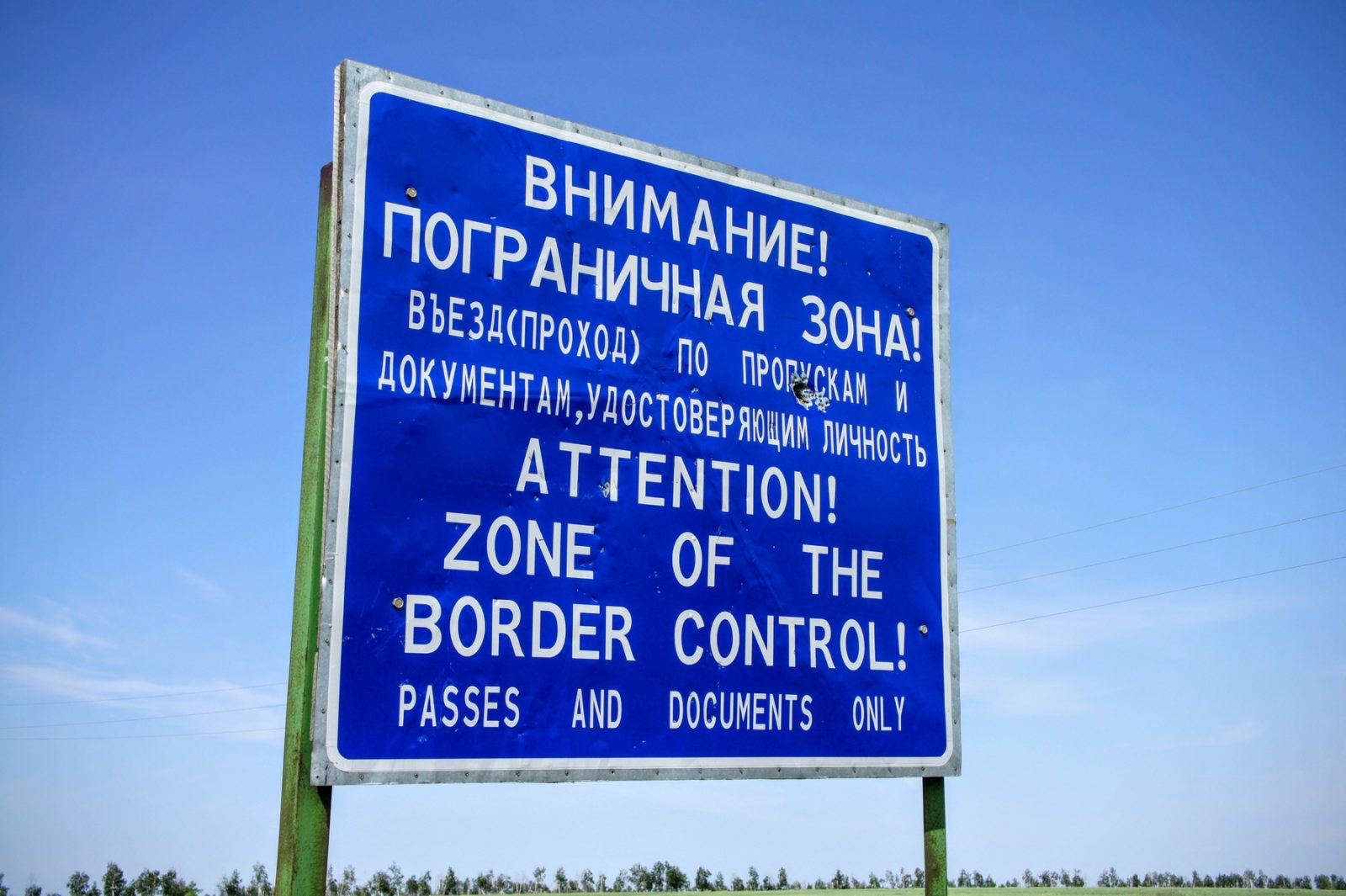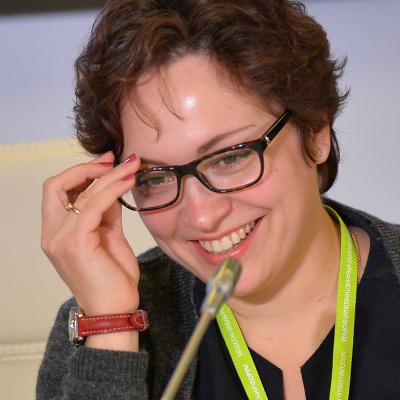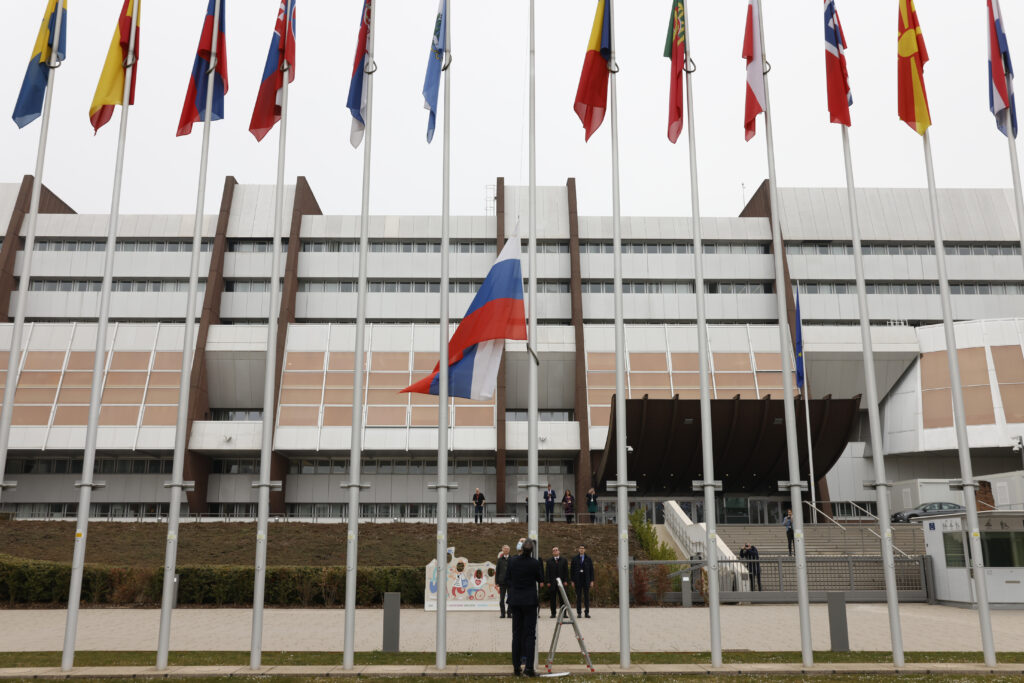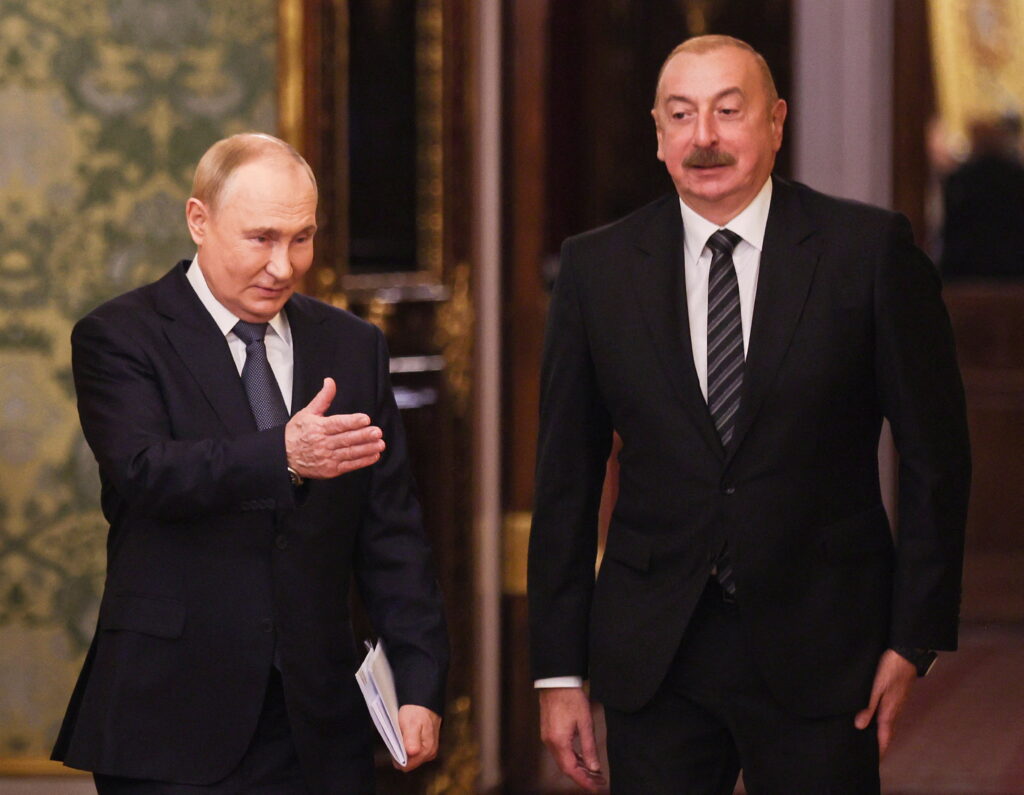In recent years, a large number of citizens from ex-Soviet countries have not just sought employment, education and family reunification within the European Union; there has also been a significant drive to seek asylum. Approval rates for asylum applications here are low – between 1.5% and 4%. But that does not deter asylum seekers from Georgia, Ukraine and Russia in particular from seeking refuge in the EU. In 2016-2017, 19% of approvals were granted to citizens of Ukraine, Russian nationals of Chechen origin, representatives of NGOs and LGBT activists in some EU countries.
Humanitarian migrants: the reason for possible suspension of visa-free travel between Georgia and the EU
A surge in the number of asylum seekers from Georgia was seen in the EU in late 2017, a year after the introduction of visa liberalisation between Georgia and the bloc. From September to December 2017, citizens of Georgia lodged an unbelievable number of asylum applications in Spain (18% of applications in that country), the Czech Republic (13%), Ireland (9%), Sweden (8%), Denmark, Finland and Sweden (6%).
Not surprisingly, visa liberalisation with the European Union has become a multi-faceted challenge for Georgia. Implementation of the Readmission Agreement, which regulates the return of Georgian nationals who violate the immigration law of an EU member state, was an important prerequisite for the introduction of visa-free travel, which had been under negotiation since 2012. Other requirements included a continuous and comprehensive information campaign about the nature of the EU-Georgia visa-free regime and the active involvement of the country’s authorities in the fight against international crime.
The very idea of expanding the EU visa-free area to the east was fraught with fears and doubts in EU member states. They were, frankly, reluctant to do so because of the fear of growing flows of irregular migrants and an influx of individuals with criminal records. As a result, in February 2017 EU legislation was amended to expand the grounds for suspending or waiving a visa-free regime, and to simplify the procedure. Amendments that took force on 28 March 2017 provide for the suspension of visa-free travel between the EU and third countries in the following cases:
- an increase by more than 50% of the flow of irregular migrants and/or when citizens of the third country violate rules of stay in EU member states;
- an increase by more than 50% of the number of asylum applications while the number of approved asylum requests in EU member states does not exceed 3-4%;
- whenever this poses a threat to the public order and security of EU member states.
A year after the agreement came into force, Georgia, with its population of 3.7 million people, became one of the top 10 countries of origin for humanitarian migrants fleeing to the EU. In January 2018, 1,748 Georgian nationals lodged asylum applications in EU member states; 1,650 applications were submitted in February 2018 and 1,613 in March 2018 (as compared to 541 asylum applications in 2016 and 753 in 2017). The rate of approvals for Georgian citizens is negligible, at less than 2%.
The influx of humanitarian migrants from Georgia to the EU has become a time bomb for the visa-free agreement. Still, we should not expect it to cause the revocation of the pact. European Council President Donald Tusk assessed very positively ‘the commitment of the Georgian authorities and politicians to continue working with EU institutions [to resolve the problem], which is a prerequisite for maintaining a visa-free regime between the EU and Georgia.’
The surge of humanitarian migrants has forced Georgian MPs to amend national legislation. From now on, the readmission and return of migrants whose asylum applications have been rejected by EU member states will be carried out at the expense of the Georgian state, with subsequent deductions from the income of the unsuccessful refugee. Moreover, Chapter 7 of the Law on official records of births, deaths and marriages has been amended to prevent re-entry into the Schengen area by people who change their surnames and intend to apply for asylum again: Adult nationals of Georgia cannot change their surnames before five years have passed since their deportation from an EU member state and/or after their return to Georgia under the readmission programme.
Ukraine – Europe’s forgotten refugees?
Ukrainians are not ‘Europe’s forgotten refugees’ simply because they flee to the EU mainly in search of employment and education. The number of asylum applications filed by Ukrainian nationals in Western countries and the number approved are negligible. In 2017, Ukrainian nationals constituted the most numerous group granted asylum in Poland (280, or 50% of the total). They were second in the Czech Republic (35 applications, or 22%) and Estonia (10 applications, or 9%). They came in third in Portugal (45 applications, 9%) and Slovakia (10 applications, 13%).
A jump in the number of asylum applications filed by Ukrainian nationals in the EU was observed in 2014-2015. In 2014, 14,060 applications were submitted, and 22,040 in 2015 (compared with 1,055 applications in 2013). Most applications were rejected due to the availability of protection within the country. The decrease in the number of applications for humanitarian reasons was due to the listing of Ukraine as a safe country of origin in the majority of EU member states, under Articles 29-31 of the Asylum Procedures Council Directive 2005/85/EC.
Ukraine was declared a safe country of origin in the UK in 2014, in Germany and the Netherlands in 2016 and Austria in 2018. The situation of Ukrainian asylum seekers in France and Poland is worthy of closer analysis. Before the Russian-Ukrainian conflict, French immigration authorities viewed Ukraine as a safe country, but in 2014 the OFPRA (Office français de protection des réfugiés et apatrides) decided to remove Ukraine from this list and apply a comprehensive procedure in the case of asylum applications from Ukrainian nationals. Reforms of Polish migration law in 2015 resulted in a similar approach, with the very notion of ‘safe country of origin’ removed. Despite the recommendations of the UNHCR to remove Ukraine from the list of ‘safe countries of origin’, the immigration services of Bulgaria, the UK, Luxembourg and other countries still consider Ukraine a safe country.
Twelve EU member states – Austria, Belgium, Bulgaria, the Czech Republic, Denmark, France, Germany, Ireland, Luxembourg, Malta, Slovakia and the UK – include the concept of a safe country of origin in their legislation, although the lists differ from country to country. Applications filed by asylum seekers from safe countries are approved or denied based on a single interview by a representative of the immigration authorities. As a rule, decisions to reject applications on safe country grounds can be appealed against and overturned within seven days by the supreme administrative court in an EU member state, e.g. the Federal Administrative Court BvwG in Austria, or the Supreme Administrative Court in the Czech Republic. The number of overturned decisions in the case of asylum seekers from ‘safe’ countries ranges from 0.9 – 2.5%.
Russians seeking asylum in the EU
In February 2016, a total of 1,208 asylum applications were filed by citizens of the Russian Federation in EU member states; 1,008 in February 2017, 968 in January 2018; 825 in February 2018 and 906 in March 2018. Although the figures show a slowing of humanitarian migration from Russia, the reason for seeking asylum remains unclear, and it is not certain what should be done with Russian nationals who are not considered refugees or individuals in need of protection.
People of Chechen origin are the most numerous group of Russian asylum seekers in EU member states, and the main country to receive Russian asylum seekers is Poland. Before 2009, 6% of Russian asylum applicants of Chechen origin received refugee status in Poland, while that number dropped to 4% in 2016.
In the case of Russian nationals, 115 applications were approved, or 21% of all asylum applications in Poland in 2017. In the fourth quarter of that year, Russians outnumbered Ukrainian nationals in terms of the number of asylum applications (340 applications, or 70%, coming from citizens of Russia, versus 40 applications, or 8%, from citizens of Ukraine). While Ukrainian nationals are called ‘Europe’s forgotten refugees’, Russian nationals of Chechen origin can be called ‘Europe’s unrecognised refugees’.
Before the surge of humanitarian migrants from the Middle East and Africa, Poland was a transit country for humanitarian migrants from Russia. Once they reached the territory of Poland, they did not stay long, moving on to Germany, Sweden, France, Belgium and other EU countries. The situation changed in 2014-2016, when EU member states began to send transit Russian migrants back to Poland based on the Dublin Regulation, which stipulates that ‘the state where the asylum seeker first entered the EU is responsible for examining an asylum application.’ The problem of Russian nationals of Chechen origin worsened in Poland, and became the subject of hearings at the European Court of Human Rights in Strasbourg. As a result, Polish migration law was revised to allow claims for compensation in accordance with Art. 407 of the Act on Foreigners, for violation of rights due to ‘wrongful detention or wrongful placement in a guarded centre or in a detention centre for foreigners’.
In April 2018, Poland became the respondent in the case of Bistieva and Others v. Poland. Bistieva and her three minor children had been placed in a guarded centre for aliens in the town of Kętrzyn; they finally left Poland for the small town of Herne in North Rhine-Westphalia in Germany, after having been refused asylum in Poland. The ECHR ruled that the applicant and her children should be compensated EUR 12,000. In a number of other cases, e.g. M.K. v. Poland (No. 40503/17), M.A. and others v. Poland (No. 42902/17), M.K. and others v. Poland (no. 43643/17), and D.A. and others v. Poland (No. 51246/17), the ECHR called on Poland to review its practice of examining asylum applications lodged by Russian nationals of Chechen origin who flee to Poland via the Belarusian border, and to bring it into line with EU standards.
Chechen migration to Europe is a huge challenge for EU bureaucracy, which faces difficulties in integrating this group of humanitarian migrants or returning them to their country of origin. On May 1, 2018, ERIN (the European Reintegration Network) announced a pilot project on the return of citizens of the Russian Federation of Chechen origin from Germany, France, Sweden and the UK to Russia and/or Chechnya. Funding has been earmarked for only 6 months, until October 31, 2018, since it is difficult to predict the demand for the return programme or the success of such an initiative. This pilot project to support returns to Russia and/or Chechnya applies only to Russian nationals of Chechen origin.
In Russia, coordination and implementation of the reintegration programme will be carried out by the Moscow and Grozny offices of Caritas, a religious charity organisation. The reintegration programme offers various types of assistance to returnees: administrative and/or financial assistance in finding employment and/or starting a business; social and/or legal aid; search for and/or provision of housing and furniture, etc. The amount of financial assistance is limited, and is taxed at a rate of 13% in accordance with Russian law.
Financial assistance for returnees varies depending on a number of criteria. ERIN finances voluntary returns of Russian nationals of Chechen origin with EUR 2,500 when their vulnerability and violation of their rights are documented; EUR 2,000 for regular voluntary return; EUR 1,000 for forced return, including based on a decision of immigration authorities; and EUR 750 for forced return of people detained in an EU member state based on EU law and a court decision due to a violation of public order.
It has become obvious that humanitarian migration from post-Soviet countries to the EU is a consequence of political and socio-economic processes in Georgia, Ukraine and Russia. Between March 2016 and March 2018, 22,032 Georgian, 19,948 Ukrainian and 35,403 Russian asylum seekers were registered in EU member states. Profiles of this group of asylum seekers vary. Many of them try to take advantage of the situation and flee to EU countries not because they are running away from persecution or threats, but in search of a better life. These are the ones who undermine the gravity of the institution of asylum, and hinder the procedure of granting humanitarian protection to people who really need it. The EU is not threatened by a new surge of humanitarian migrants from Georgia, Ukraine and Russia. Although EU immigration authorities find it difficult to differentiate among the profiles of migrants, this task is within their reach.










